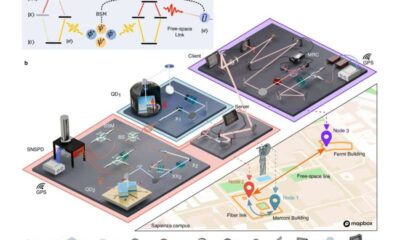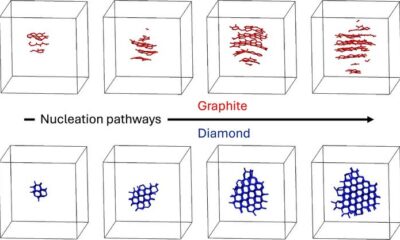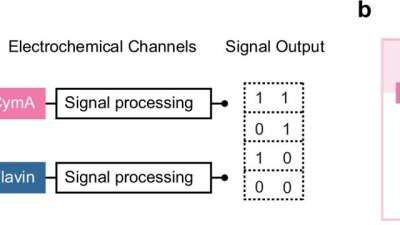Health
New AI Model Revolutionizes IVF with Enhanced Embryo Selection

A groundbreaking artificial intelligence tool, the Foundational IVF Model for Imaging (FEMI), has been developed to significantly enhance embryo assessment in in vitro fertilization (IVF). Trained on an extensive dataset of approximately 18 million time-lapse images, FEMI aims to improve the accuracy of embryo selection, offering a non-invasive alternative that could revolutionize traditional IVF testing methods.
Advancements in Embryo Assessment
A study published in Nature Communications assessed the performance of FEMI across multiple clinical tasks such as ploidy prediction, blastulation time prediction, and blastocyst quality scoring. The study highlights the pressing need for more efficient and standardized methods to evaluate embryos, as traditional approaches often suffer from high costs, a lack of uniformity, and inconsistent regulations regarding preimplantation genetic testing for aneuploidy (PGT-A). These limitations can adversely affect IVF success rates, leading to emotional and financial stress for patients.
FEMI’s introduction is particularly timely, as it offers a solution to these challenges. By leveraging artificial intelligence, the model enhances the prediction of embryo morphology and ploidy status, which are critical for successful IVF outcomes. Previous models, like the Blastocyst Evaluation Learning Algorithm (BELA), have shown promise but often rely on embryologist input, limiting their efficacy. In contrast, FEMI employs a self-supervised learning approach using Vision Transformer masked autoencoders (ViT MAE), allowing it to independently analyze and learn from extensive datasets.
Training and Performance Metrics
The FEMI model utilized a diverse training dataset of time-lapse images captured from multiple IVF clinics. Images were collected after 85 hours post-insemination and were tightly cropped around the embryos to enhance feature learning. The dataset was divided into an 80% training and 20% validation split, treating each image as an independent sample.
In evaluating FEMI’s capabilities, the study compared its performance against several benchmark models, including MoViNet, VGG16, and EfficientNet V2. The findings indicated that FEMI significantly outperformed these models, particularly in predicting ploidy under conditions of low embryo quality. Notably, it achieved superior results in overall blastocyst scoring and inner cell mass scoring across various datasets, demonstrating its reliability in embryo assessment.
FEMI also excels in accurately predicting blastulation time, a key factor for embryologists in assessing embryo quality. By classifying embryo stages as a regression task, FEMI achieved a top-1 accuracy of 60.31%, comparable to Embryovision’s 60.58%, illustrating its potential to refine developmental monitoring processes in IVF.
Despite the promising results, the authors of the study acknowledge some limitations. The segmentation and stage prediction tasks were trained and tested on the same datasets, which could affect generalizability. Additionally, the ploidy prediction excluded mosaic embryos and relied on data collected up to 112 hours post-insemination, which may overlook viable embryos that develop later.
Looking ahead, the design of FEMI as a foundational model suggests that it can be fine-tuned and adapted for broader clinical applications. The authors propose its use as a backbone for future prediction tasks, such as implantation or live birth, contingent upon access to relevant datasets.
The study positions FEMI as a significant advancement in standardizing embryo assessment in IVF. By employing self-supervised learning on a vast and diverse dataset, it demonstrates the potential to outperform traditional models and improve overall IVF success rates. With further validation and clinical trials, FEMI could emerge as a vital decision-support tool in reproductive medicine, providing hope for many individuals seeking fertility solutions.
-

 World4 days ago
World4 days agoCoronation Street’s Shocking Murder Twist Reveals Family Secrets
-

 Entertainment4 months ago
Entertainment4 months agoKate Garraway Sells £2 Million Home Amid Financial Struggles
-

 Entertainment3 months ago
Entertainment3 months agoAnn Ming Reflects on ITV’s ‘I Fought the Law’ Drama
-

 Entertainment2 days ago
Entertainment2 days agoAndrew Pierce Confirms Departure from ITV’s Good Morning Britain
-

 Health3 months ago
Health3 months agoKatie Price Faces New Health Concerns After Cancer Symptoms Resurface
-

 Entertainment4 weeks ago
Entertainment4 weeks agoCoronation Street Fans React as Todd Faces Heartbreaking Choice
-

 World4 weeks ago
World4 weeks agoBailey Announces Heartbreaking Split from Rebecca After Reunion
-

 Entertainment1 week ago
Entertainment1 week agoTwo Stars Evicted from I’m A Celebrity Just Days Before Finale
-

 World1 week ago
World1 week agoKevin Sinfield Exceeds Fundraising Goal Ahead of Final Marathons
-

 Entertainment3 months ago
Entertainment3 months agoCoronation Street’s Carl Webster Faces Trouble with New Affairs
-

 Entertainment3 months ago
Entertainment3 months agoWhere is Tinder Swindler Simon Leviev? Latest Updates Revealed
-

 Entertainment4 months ago
Entertainment4 months agoMarkiplier Addresses AI Controversy During Livestream Response





















